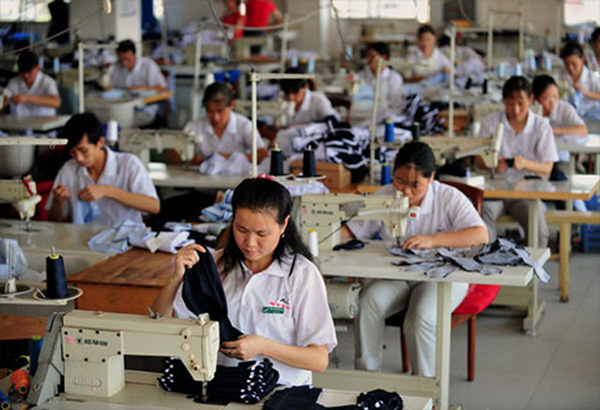Employers decry higher penalties for wage violations

In a position paper submitted to the House committee on labor and employment, the Employers Confederation of the Philippines (ECOP) expressed its opposition to House Bill (HB) 356, which seeks to amend provisions of the Wage Rationalization Act, and HB 5018, which attempts to ensure employees’ right to their wages. File
MANILA, Philippines - Employers have raised concern over bills that seek to increase penalties for non-compliance with government-prescribed minimum wages.
In a position paper submitted to the House committee on labor and employment, the Employers Confederation of the Philippines (ECOP) expressed its opposition to House Bill (HB) 356, which seeks to amend provisions of the Wage Rationalization Act, and HB 5018, which attempts to ensure employees’ right to their wages.
“The bill (HB 356) seeks to further increase penalties, already severe under RA8188, against all enterprises, big and small, distressed or non-distressed, for non-payment of wage rates prescribed by the Regional Tripartite Wage and Productivity Boards,” ECOP said.
ECOP said the bill failed to take into account the dynamics of minimum wage fixing which RA 6727 seeks to rationalize, as well as the realities of the Philippine labor market characterized by a tight small formal sector and a large informal sector.
“The bill appears to underlie a populist orientation that seeks to impose the harshest punishment possible against enterprises ostensibly to protect wage and salary workers against violation of their rights, which in this case, the prescribed wage rates,” the group said.
“Nowhere in any other market economy in this region, is such prescription imposed against enterprises, which needless to say, are the key generators of wealth and employment,” it added.
ECOP said the bill affects only wage and salary workers in establishments operating in the formal sector, which employ 16 percent of the total employed labor and constitutes mostly of micro and small establishments.
“These enterprises are generally short on capital and technology and rely mainly on human skill and resources to produce their goods and services. However, their labor absorptive capacity, if not their very own existence, are constantly threatened by periodic non-productivity based wage increases granted by the wage boards, which many, if not most, could ill afford. Thus the owners of over 96 percent of the enterprises operating in the formal sector are threatened with these fearsome penalties,” it said.
As for the imposition of “harsh penal sanctions” under HB 5018, ECOP said fines as suggested in one of its provisions are excessive, especially if imposed on employers of micro establishments.
As for the proposal under the bill mandating the payment of wages and wage-related benefits of an employee be made through automated teller machines (ATM), ECOP pointed out not all provinces, cities and municipalities have ATMs.
“Moreover, not all employers, especially micro enterprises, have existing accounts with banks. To require all establishments especially micro establishments, to pay wages of their employee through ATM’s would not be feasible in all cases,” the group said.
- Latest
- Trending






























